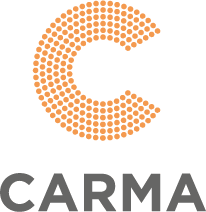As Amanda Pritchard becomes the first female chief executive of NHS England – the first woman to hold the top job in the health service’s 70 year history, the whole issue of (the lack of) female leadership is once again being discussed, debated and quizzed. For an organisation where 76% of employees and pretty much half the patients are female, why has it taken seven decades for the NHS to reach this point?
 Whatever your answer to this question, it’s really important that we see, hear and read more from female leaders so that it becomes the norm, rather than something exceptional. Yes, we are still struggling with statistics such as in the UK FTSE 100, there are just six female CEOs compared to 94 men and that female CEOs earn, on average, £21k less than their male counterparts. But I, for one, am convinced that better visibility of women across all sectors and industries will only improve such out-dated data.
Whatever your answer to this question, it’s really important that we see, hear and read more from female leaders so that it becomes the norm, rather than something exceptional. Yes, we are still struggling with statistics such as in the UK FTSE 100, there are just six female CEOs compared to 94 men and that female CEOs earn, on average, £21k less than their male counterparts. But I, for one, am convinced that better visibility of women across all sectors and industries will only improve such out-dated data.
This is a vital time to engage – journalists are desperate to have more diverse voices and audiences want to hear different stories and perspectives, whether that’s from a tech start-up, a campaigning organisation or an online retailer. And there are plenty of talking opportunities, ranging from commenting on the impact of Covid and government policies to net zero ambitions and employee welfare. Talking to the media need not just centre around a product launch – there are a broad spectrum of issues that businesses and organisations will have a first-hand perspective on that a large audience, i.e. viewers, listeners and readers, want to hear about.
With 20 years of experience as a news and current affairs journalist and ten in media training, I would say that lack of confidence is often a reason mentioned by women (and actually many men) as being a hurdle to talking to journalists. But doing media interviews is a skill that can be learnt like any other. It is genuinely rewarding for me to see how a spokesperson can, with even a few hours of support, significantly develop their performance and content so it’s sharp, succinct and impactful.
The other concern I hear is that many people fear that they’re going to be cross-examined and face some very tough questions. In reality, ‘being Paxman’ed’ is an experience you’ll only really face if you are the subject of an investigation or crisis. Most engagements with journalists are an opportunity for you to share your expertise and insight – think controlled conversation rather than interrogation.
If we want those awful stats about the poor representation of women to be a thing of the past, then we owe it to ourselves, other women and indeed, society as a whole, to be more visible and vocal – so let’s start talking.
Zaiba Malik is the Founder and Director of Coppergate Communications Ltd, a consultancy that specialises in media training and reputation management. She is an award-winning former journalist who has reported for BBC News, Newsnight, Radio 4, Channel 4 News and Dispatches.



